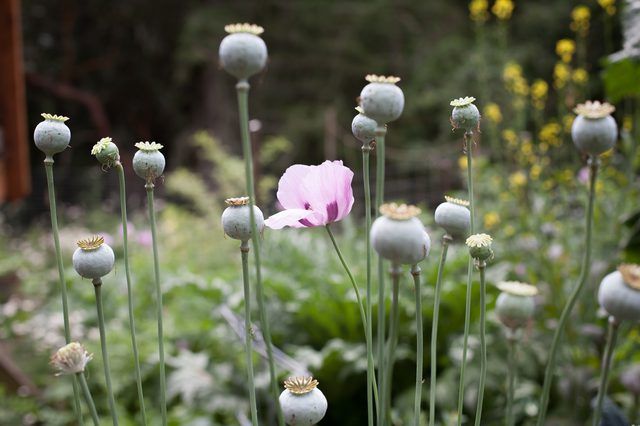Bulbs
Flower Basics
Flower Beds & Specialty Gardens
Flower Garden
Garden Furniture
Garden Gnomes
Garden Seeds
Garden Sheds
Garden Statues
Garden Tools & Supplies
Gardening Basics
Green & Organic
Groundcovers & Vines
Growing Annuals
Growing Basil
Growing Beans
Growing Berries
Growing Blueberries
Growing Cactus
Growing Corn
Growing Cotton
Growing Edibles
Growing Flowers
Growing Garlic
Growing Grapes
Growing Grass
Growing Herbs
Growing Jasmine
Growing Mint
Growing Mushrooms
Orchids
Growing Peanuts
Growing Perennials
Growing Plants
Growing Rosemary
Growing Roses
Growing Strawberries
Growing Sunflowers
Growing Thyme
Growing Tomatoes
Growing Tulips
Growing Vegetables
Herb Basics
Herb Garden
Indoor Growing
Landscaping Basics
Landscaping Patios
Landscaping Plants
Landscaping Shrubs
Landscaping Trees
Landscaping Walks & Pathways
Lawn Basics
Lawn Maintenance
Lawn Mowers
Lawn Ornaments
Lawn Planting
Lawn Tools
Outdoor Growing
Overall Landscape Planning
Pests, Weeds & Problems
Plant Basics
Rock Garden
Rose Garden
Shrubs
Soil
Specialty Gardens
Trees
Vegetable Garden
Yard Maintenance
How to Plant Poppy Seeds
How to Plant Poppy Seeds. Poppies (Papaver spp.) are ornamental plants often cultivated for their vibrant flowers. The group includes summer-flowering perennials, hardy from U.S. Department of Agriculture plant hardiness zones 2 through 9, and long-blooming annuals. Depending on the species, their colorful blooms may appear from spring through...
Poppies (Papaver spp.) are ornamental plants often cultivated for their vibrant flowers. The group includes summer-flowering perennials, hardy from U.S. Department of Agriculture plant hardiness zones 2 through 9, and long-blooming annuals. Depending on the species, their colorful blooms may appear from spring through fall. Both annual and perennial poppies adapt easily to most growing conditions. They grow well from seed sown directly in the garden, and they self-seed readily at season's end. Whether you're sowing seed for annual poppies or perennials, the simple procedures are the same.
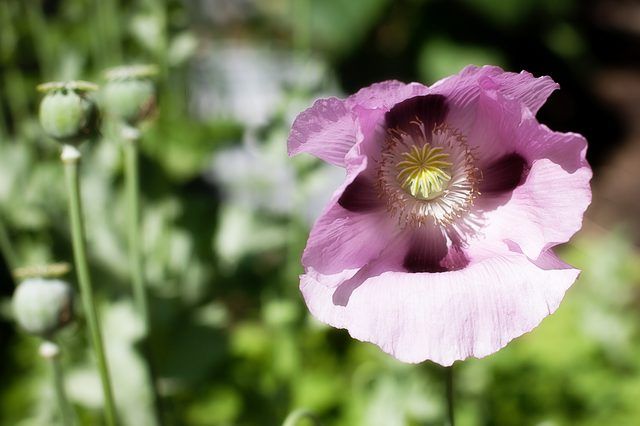
Things You'll Need
Poppy seeds
Garden hoe
Garden rake
Compost
Watering can
Step 1
Select a planting site where your poppies will receive full sun. Poppy seeds require light for germination, and they produce their most bountiful, brilliant blooms in sun. Poppies don't like to be transplanted, so pick a spot where seed-grown plants can mature.
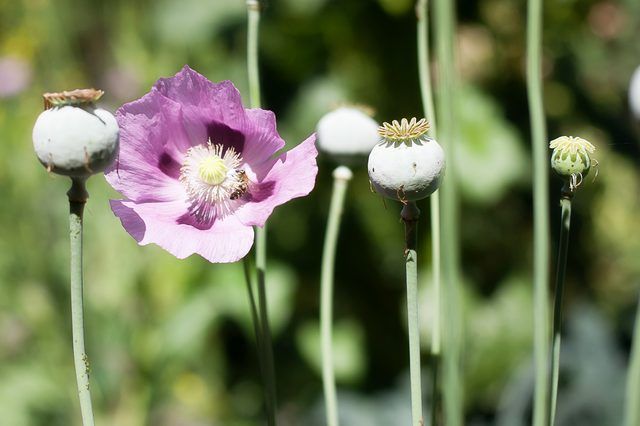
Step 2
Sow your poppy seeds in early autumn for late spring blooms. Poppy seeds need a period of winter chill to bloom their best. If using purchased annual seeds, those can be planted in spring for same year blooms. Perennial seeds take a extra year to bloom.
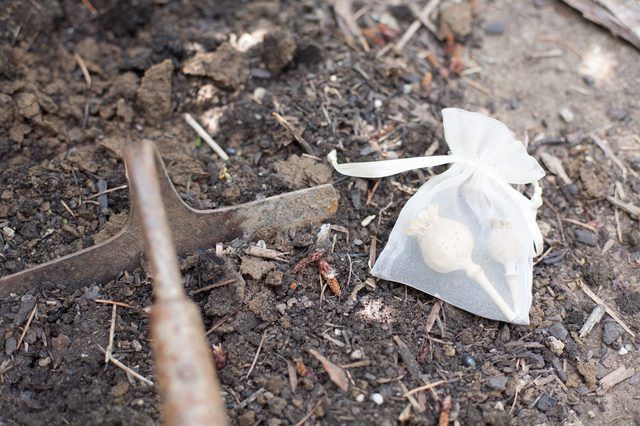
Step 3
Loosen the soil of your poppy garden using a garden hoe, and then spread a light covering of compost over the area. Rake the compost to mix it into the soil's top layer. This prepares a well-drained bed for poppy seed to grow. No additional fertilizer is needed.
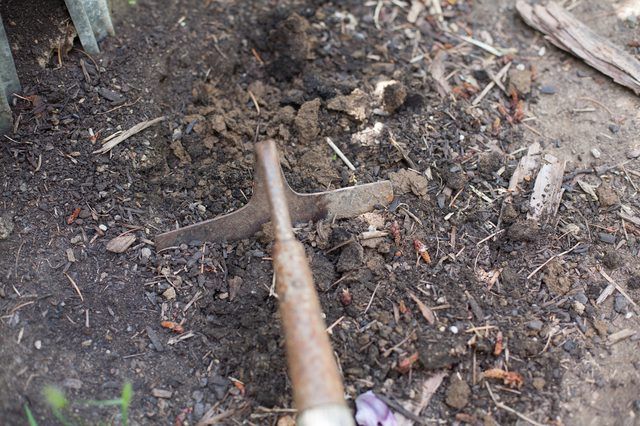
Step 4
Scatter the seeds by hand over the prepared soil for an informal garden, or place them in defined areas for an orderly look. Because poppy seeds are very small, gardeners often mix them with sand to achieve a more even distribution. This also helps you see where the seeds were sown.
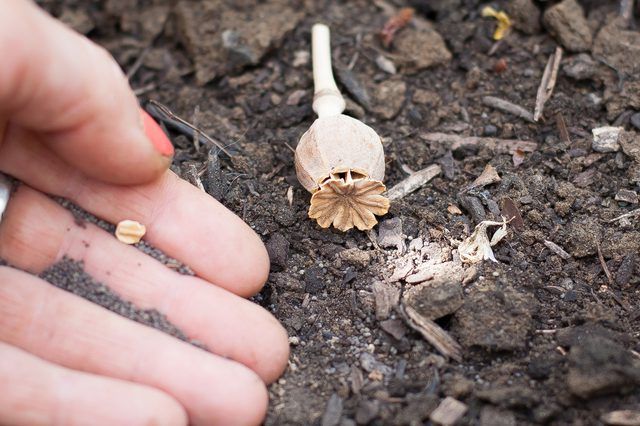
Step 5
Press the seeds lightly down into the soil so they are covered by a very thin layer of soil or sand. This keeps the seeds in place, protects them from birds, and allows plenty of light for germination.
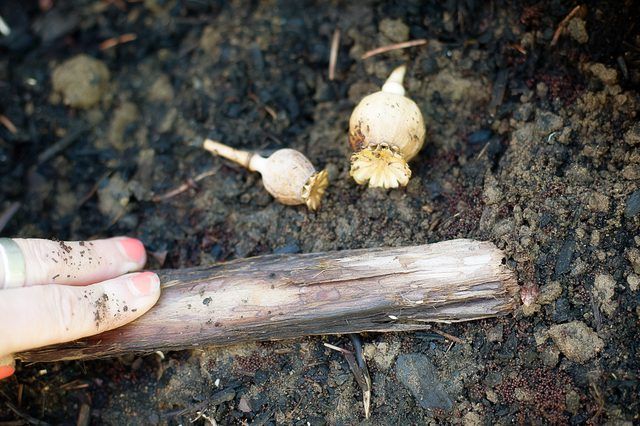
Step 6
Moisten your poppy bed after planting, and keep the soil consistently moist. Poppies possess a delicate root system and should be watered gently until taking root. Germination depends on climate and species, but normally occurs within 25 days.
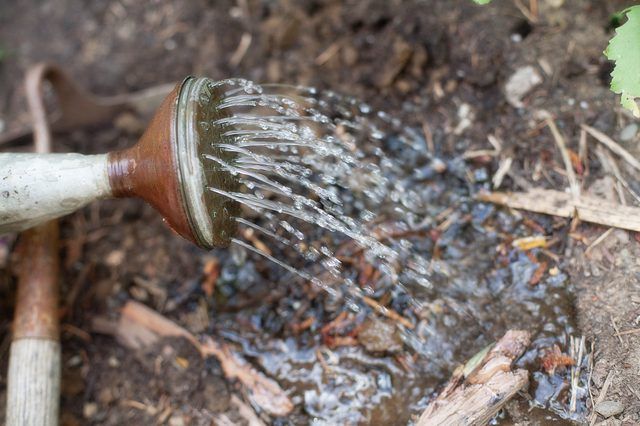
Step 7
Thin seedlings, if desired, when they reach a height of 5 inches. Plants placed 8 to 10 inches apart face less competition and produce more flowers and seed pods. Continue watering regularly to keep soil moist, but never soggy.
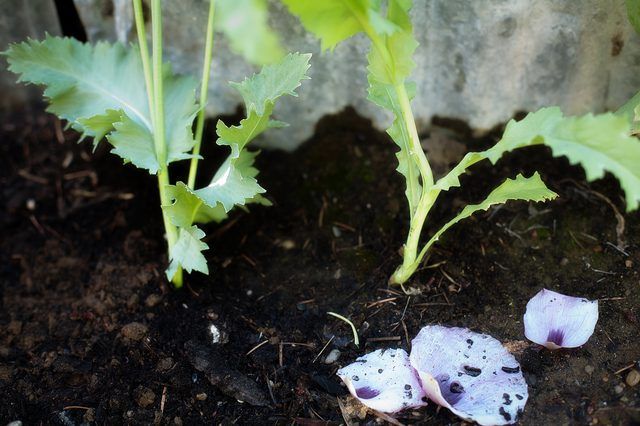
Step 8
Leave flowers on your plants after blooming if you want seeds for next year. Pods will burst open to self seed, or you can harvest pods and save seeds for your next planting. An established poppy garden, with a continuous cycle of new seedlings and established plants, produces yearly blooms with little maintenance.
